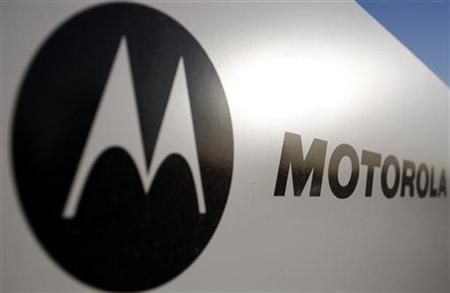With Motorola Gone, Who?s Next Mobile Patent Target?

Now that Motorola Mobility has agreed to become a part of Google, who's next in the move towards platform consolidation?
Intellectual property and patents have become "an intellectual property revolution similar to the industrial revolution," said James Malackowski, CEO of Ocean Tomo, a Chicago investment bank that specializes in IP.
Likely candidates could include InterDigital, a developer of technologies for the wireless sector that put itself up for sale after an Apple-Microsoft-led syndicate paid $4.5 billion for patents from Nortel Networks. InterDigital shares plunged 18 percent Monday. That still brings the gain since the King of Prussia, Pa., company announced its auction above 41 percent, giving it a market capitalization of $2.8 billion.
A buyer, whether a Google or a rival like Microsoft or Apple, would get pure IP, no play into the consumer or marketing sector.
Meanwhile, Research in Motion, the Canadian developer of the BlackBerry mobile devices and PlayBook tablet, has vaults of patents and enormous reach into the enterprise market and government sector, along with promising consumer inroads in developing markets such as Indonesia and India. RIM shares rose about 4 percent Monday, giving it a market cap of $13.5 billion, only a week after the Waterloo, Ontario company's shares set a 52-week low.
Aside from expertise in platforms, RIM also has vast experience in network management, which could make it attractive to a telecommunications or computer services operator that might want to compete with like the likes of HP, the largest U.S. computer services provider. HP, which sells the TouchPad tablet, paid $1.2 billion for handheld pioneer Palm last year.
Besides its IP, the BlackBerry name itself adds value, said Clive Chajet, the New York brand consultant who's advised hundreds of companies on brands and images. "Look what a fruit name has done for Apple," he said.
There are also others, such as Nokia, the Finnish mobile pioneer whose market share has plummeted and Sony, the Japanese consumer electronics giant whose Walkman product clearly inspired Apple's iPod but has become lackluster since founder Akio Morita died.
Nokia shares rose more than 10 percent Monday and Sony's ADRs rose about 3 percent after the Google-Motorola Mobility merger.
One obstacle to any bidder could be that RIM, Nokia and Sony are all seen as national champions, so any prospective bidder might encounter unusual hostility.
Other prospective players in the market could include Oracle, the database and software services giant which has already sued Google for alleged patent violations of its Java software, whose open-sourced patents came with the takeover of Sun Microsystems.
Oracle, which had cash and securities exceeding $29 billion on May 31, has a history of big acquisitions, including Sun, Siebel Systems and PeopleSoft.
Aside from its OpenOffice software that competes with Microsoft, it has no consumer platforms. A platform like RIM, though, might prove to be a target for Oracle, though, because of synergies in the enterprise market.
© Copyright IBTimes 2024. All rights reserved.






















